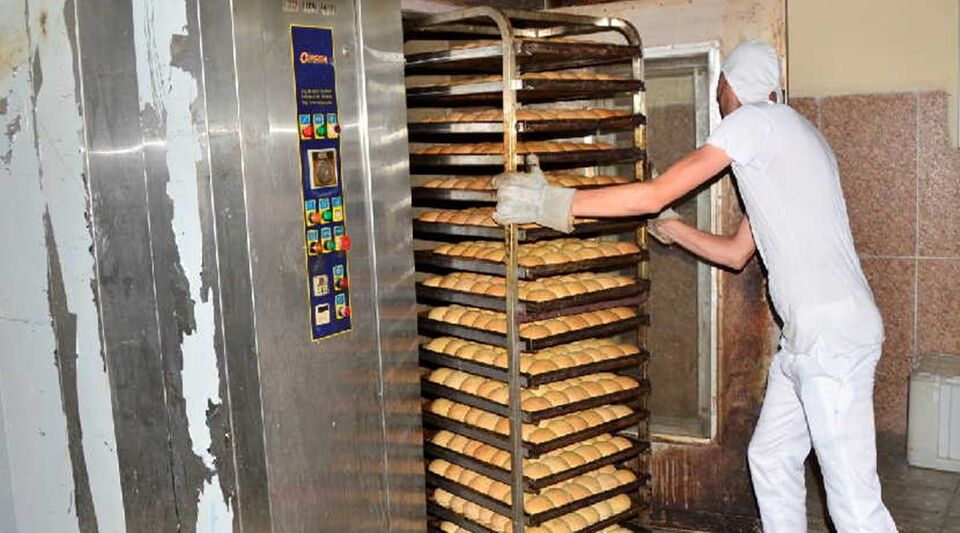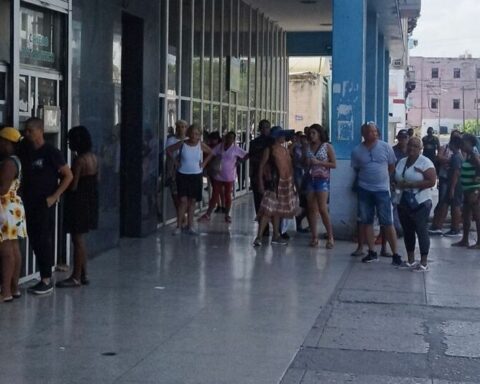The excuses of the Provincial Food Industry Company (Epia) about the poor quality of the bread sold through the ration book in Cuba do not convince even the official press. This Monday, the newspaper September 5 is dispatched in a long article against what he calls “the prevailing impudence in the production of the valued food”.
The local newspaper refers, specifically, to a statement from the Epia posted on facebook where the state company assured, defending itself from the criticism received by consumers, that what affects the “correct elaboration of the final product” is the wheat flour they receive, which “presents weak quality characteristics.”
“Despite the efforts of master bakers, workers and directors in order to provide quality food,” Epia acknowledged, “the bread that is obtained has roughness, roughness, crumbles to the touch, little volume, darkened color, strong musty smell and acid taste caused by the prolonged fermentation time to achieve the dough”.
Similarly, they predicted that this situation would continue, “taking into account that the wheat flour in reserve for the coming months has the same characteristics.”
The note on September 5 titled The misfortune of bread, a “soap opera in retransmission” says that such a response from Epia “stoked the fire”, and notes that “around 75 percent of users” questioned “the arguments presented”, considering them “excuses”, “regrets”, “unjustifiable justifications” or a “script that no one believes anymore.
“They are fodder wheat from the second and third harvests of nations such as France, and occasionally from Argentina and Germany,” details the official
“Today the wheat received is not the ideal, but the one that the country can buy,” Esther Arbolay Escobar, head of the laboratory of the Cienfuegos Cereals Base Business Unit, told the provincial newspaper. “They are fodder wheats from the second and third harvests of nations like France, and occasionally from Argentina and Germany,” the official details, admitting: “They have a terrible quality, with a high percentage of impurities, because they bring seeds from the field, corn , and sometimes they even get mixed with peas”.
However, the report continues, the certificates issued by the National State Inspection Office (Onie) of the Ministry of the Food Industry, in Villa Clara, “validate the levels of confidence” of the flour produced in Cienfuegos and certify that “it is in perfect condition and meets the conditions in terms of smell, color, and other parameters”.
The poor quality of the material is not the only problem with bread, they argue from the Epia. in the note. Thus, another official of the company, Jeny Hurtado Alejo, alluded to the fact that “we have not won in the individual improvement of the workers”, that is to say, that the workers also have more responsibility.
In addition, “the technological conditions of the bakeries” influence. The director of the Epia, Magaly Torres Abreu, says that “the 48 installed Chinese modules” are deteriorated, and that “the breakages cause some to assume the load of others, and they no longer have the capacity for that.”
Laments abound not only among consumers, but also among bakers, such as Julián Alberto Brunet Abreu, who says that at the Santa Elena bakery, near the Paquito González Cueto Pediatric Hospital in Cienfuegos, “even the carts to move the bread are in in poor condition, and we run the risk of dropping it when moving it from the oven to the stove.
According to data from the Onie in Cienfuegos, during 2022 some 14 bakeries – 11 from the Epia, and three from the Cuban Bread Company, which supplies outside the regulated basket and whose product has a slightly better quality – have been fined, “Fundamentally, due to the low weight of the product,” says 5 de Septiembre, which, they add, “has nothing to do with the quality of the raw materials.”
________________________
Collaborate with our work:
The team of 14ymedio is committed to doing serious journalism that reflects the reality of deep Cuba. Thank you for joining us on this long road. We invite you to continue supporting us, but this time becoming a member of our journal. Together we can continue transforming journalism in Cuba.







